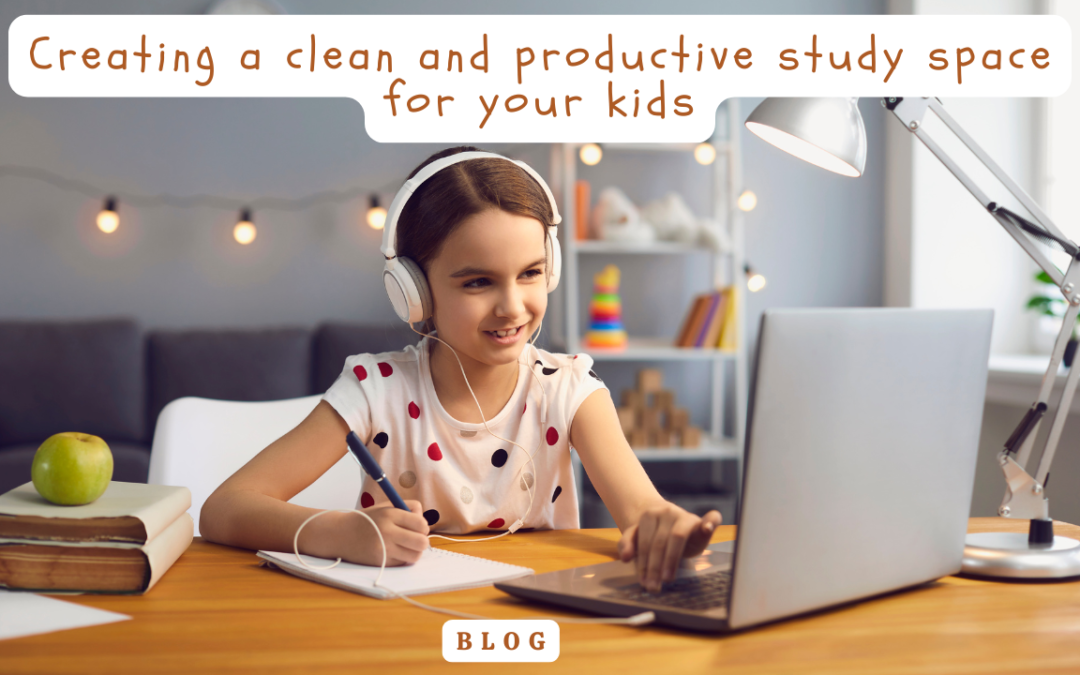As school assignments pile up and study sessions become more frequent, having a clean and organised study space can make all the difference in your child’s focus and productivity. A clutter-free environment not only reduces distractions but also promotes a sense of calm and efficiency, helping kids stay on top of their schoolwork. Plus, with a few eco-friendly cleaning habits, you can maintain a healthy and sustainable space for learning.
Why a clean study space matters
A messy desk can lead to a messy mind. Studies show that clutter can increase stress levels and make it harder for kids to concentrate. When their workspace is clear and organised, they can find what they need quickly, stay focused for longer periods, and complete tasks more efficiently. A clean study area also sets a positive routine, encouraging kids to take their learning seriously and build good habits for the future.
Eco-friendly cleaning tips for a productive study space
Keeping your child’s study space clean doesn’t mean resorting to harsh chemicals. There are plenty of natural and sustainable ways to maintain a fresh and inviting environment. Here are some tips:
1. Declutter regularly
Start by removing unnecessary items from the desk. Old papers, broken stationery, and random clutter can quickly pile up. Encourage your child to go through their desk weekly and remove anything they don’t need. Use a small recycling bin nearby to make it easy for them to dispose of paper waste responsibly.
2. Use natural cleaners
Swap chemical-laden sprays for eco-friendly alternatives. A simple mix of vinegar, water, and a few drops of lemon or eucalyptus essential oil works wonders for wiping down desks and shelves. It’s safe for kids, non-toxic, and leaves the space smelling fresh without artificial fragrances.
3. Keep air quality in check
Good air quality is essential for concentration and overall well-being. Open the windows daily to let in fresh air and consider adding an air-purifying plant like a spider plant or peace lily. These plants naturally filter toxins and improve indoor air quality while adding a touch of greenery to the space.
4. Organise with sustainability in mind
Use storage solutions that are both practical and eco-friendly. Bamboo organisers, recycled paper trays, and repurposed jars for stationery are great alternatives to plastic storage bins. Labelling items can also help kids maintain order and prevent clutter from creeping back in.
5. Encourage mindful habits
Teaching kids to clean up after themselves is key to maintaining a tidy study space. Encourage a five-minute tidy-up routine at the end of each study session—wiping down surfaces, putting away supplies, and organising books. This small habit can go a long way in keeping their workspace neat and functional.
The takeaway
A well-maintained study space is a powerful tool for helping kids focus, stay productive, and develop positive learning habits. By incorporating eco-friendly cleaning practices, you can create a healthy, clutter-free environment that supports their academic success while being kind to the planet.
With just a little effort and consistency, you can turn your child’s study area into a space where they can thrive—one clean and organised desk at a time!
Find more helpful blogs here!

